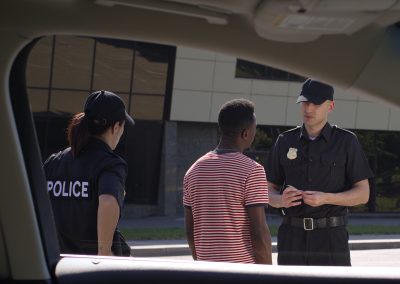I was Jeeping around Miami this weekend prior to the start of the first round of playoff games. I had on my favorite sports radio show as I navigated around the horrid South Florida drivers. Being a diehard Rams fan, I really was not into the radio conversation too much. Now, don’t get me wrong: I wish the Dolphins well. It’s just that I, well, the Dolphins have not won a Super Bowl … since Nixon was in the White House.
In any case, the talk show hosts were debating that if Dolphins Player “A” and Player “B” had not been drafted to the Dolphins this year and instead Player “C,” who had a great year with another team, would have been drafted here instead, things would have been better for the Dolphins this season.
That caught my attention. As I approached the red light, with the Jeep doors off, everyone must have heard me when I yelled,
“WHAT?!”
I then chuckled to myself, perhaps a bit embarrassed. Were these guys kidding? Did they really think that because one player having great success on a given team would have had the same success with the Dolphins had he been here? Absolutely ludicrous, I thought.
Coaching & Effective Command
But as I continued driving, I tried to piece together why I felt that way. I was able to make a link to leadership in general. I could make a sound, easy-to-understand point using the aforementioned talk show conversation as a metaphor.
First of all, if Player “A” and Player “B” were not performing up to par, it very well may have to do with their overall football ability. Then again, it may also have something to do with the coaching and the plays being called. Because of that, if Player “C” arrived on the scene, a superstar, and had a mediocre season at best, once here, would we attribute his decline to a previous flash in the pan year or perhaps a different coaching philosophy?
My take is that it is the coaching that makes the difference. Average players with a great coach will perform better than marvelously talented players with a fair coach. Look, the Miami Dolphins were the laughing stock of the NFL until their owner gave up a first round draft pick to the Baltimore Colts for their Head Coach, Don Shula. In his first year, the Dolphins made the playoffs, the next year, the Super Bowl, and the next year they went undefeated.
Comparing your team, your squad, your section as that football team, it’s in your hands to develop the talent you have at your disposal. Many of them may come into “camp” underdeveloped, green, raw, and barely average. Sadly, it seems all too often, when police have a substandard performer, there are attempts to “trade” that player to another “team” rather than work with him/her trying to get the best out of them. The substandard player becomes someone else’s problem. That, in my opinion, is an example of what I consider the purest example of poor leadership.
The Great Ones Inspire
Yes, it’s the coach who defines the team. It’s the coach that gets the most out his players. It’s not the players who get the most out of their coach. The coach, the supervisor, the commander, the chief who can inspire his/her “team” towards success via professionalism, ethically sound judgments, honesty, and compassion will rise to the stop of standings. They will win the close games. The players will believe in the play calling. We have all heard the horror stories about lousy supervisors, commanders, and chiefs. Suffice it to say, their teams didn’t shine as a result of it. The players, as great as they may have been, didn’t get the opportunity to showcase their talents because the team was just not good.
It all starts with coach and the coaching philosophy. A demand for excellence often times gets you to very good at worse. That’s not a bad place to be. Those who are those head coaches in the law enforcement world must never lose sight of their ability and opportunity to be that Lombardi, that Shula, that Landry, that Belichick in the overall scheme of things.
To those in a position to mold “the players,” Don’t drop the ball!










0 Comments